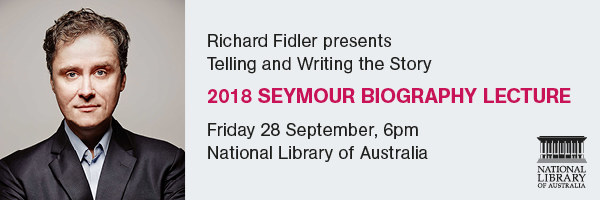
- Free Article: No
- Contents Category: Essay Collection
- Custom Article Title: Darius Sepehri reviews 'Axiomatic' by Maria Tumarkin
- Custom Highlight Text:
The third chapter of Axiomatic, ‘History Repeats Itself’, displays Maria Tumarkin’s gifts for threading the subjects of her interviews through personal questions and existential interrogations. Seen through Tumarkin’s eyes, Vanda, an indefatigable community lawyer, fights for her ...
- Book 1 Title: Axiomatic
- Book 1 Biblio: Brow Books, $34.95 pb, 216 pp, 9781925704051
‘I ask about feeling bound,’ writes Tumarkin after meeting Martin, whose father killed himself. Tumarkin wants to understand why Martin himself feels drawn to dying; after all, it is ‘not written in some stars or on tablets’ that he should share his father’s fate. The five essays of Axiomatic explore that tension between the compulsion to relive thought-patterns formed in the past through experience and ruptures in the present moment that allow for rebirths or remakings of the self. Five clichés about the past’s relationship to the present form thematically and emotionally connected sites of enquiry. These sayings are so familiar to us that we take them to be self-evident truths. Yet Tumarkin shows that our readiness to employ them can constrain true expression of life’s ordeals. Instead, she proposes as counter-thesis that ‘the past is nothing less than the beating heart of the present’, and interrogates each axiom with a panoply of techniques. Tumarkin’s strength lies in the investigation of the ambiguity of such axioms, which, though they imprison thought, also unveil truth in their understanding of experiential or felt time: ‘A supreme metaphor is also a supreme artifice.’
Tumarkin’s ambivalence toward representation is also reflected stylistically. As with the exploration of bravery in her second book, Courage (2007), Tumarkin confronts the limits of addressing devastating experiences in the creative non-fiction genre. Consequently, she twists elements to forge a kaleidoscopic melange of journalistic narration, meditations, diary entries, statistics, and passages from her subjects’ English-writing exercises. In this, Axiomatic’s debt to Belarussian writer Svetlana Alexievich, about whom Tumarkin has written, is clear. Tumarkin calls Alexievich ‘a giant of testimonial literature’, but argues that the ‘testimonial literature’ genre cannot capture Alexievich’s methods.
In Axiomatic, her fourth book, Tumarkin unleashes a freewheeling energy that was restrained in her previous books. A prominently informal register is studded with colloquialisms, contractions, and staccato phrases with pronouns and main verbs lopped off. Taut, punchy rhythms mimic conversational speech to give the grave subject matter an everydayness. There is no pretense of objectivity, unlike other testimonies of tragedy such as John Hersey’s Hiroshima (1946). Interviews are interrupted with stream-of-consciousness flows of thought and self-reflexivity, fourth-wall-breaking questions, or sudden swerves of subject.
 Maria Tumarkin (Photo via Brow Books)Perhaps this rowdy style mimics the turmoil of thoughts from the past intruding into the present, or adds a pungent energy suggesting extravagant joie de vivre as a non-rational response to life’s hardships. However, it is not clear all such choices were justified. One limitation of Axiomatic is that Tumarkin’s style can undercut the emotional effect. Sentences that adopt the register of spoken language, with an eye to intimacy, can read awkwardly, such as this one: ‘What I want to say, it’d be disingenuous of me not to shout it, is don’t forget that […].’ Occasionally, phrases are unjustifiably ungrammatical. Sentences with contorted syntax (usually featuring too many commas) would have possessed greater pathos had they been written more soberly.
Maria Tumarkin (Photo via Brow Books)Perhaps this rowdy style mimics the turmoil of thoughts from the past intruding into the present, or adds a pungent energy suggesting extravagant joie de vivre as a non-rational response to life’s hardships. However, it is not clear all such choices were justified. One limitation of Axiomatic is that Tumarkin’s style can undercut the emotional effect. Sentences that adopt the register of spoken language, with an eye to intimacy, can read awkwardly, such as this one: ‘What I want to say, it’d be disingenuous of me not to shout it, is don’t forget that […].’ Occasionally, phrases are unjustifiably ungrammatical. Sentences with contorted syntax (usually featuring too many commas) would have possessed greater pathos had they been written more soberly.
Tumarkin, writing metaphorically, achieves an elegance of register. At times, this register jars with the postmodern element. (Although this is not the case with certain images both poignant and oddly funny: ‘sometimes my parents would poke out of me like legs out of a pregnant belly’.) In many of its most lucid passages, Axiomatic achieves gravitas and a psalm-like plaintiveness. Memorably, Tumarkin draws upon a creation mythology to liken human beings to ‘broken vessels’ full of divine light. Spilling out of this vessel, shards of this light, our past experience, lodge in the present. Axiomatic reminds us that our word ‘poignant’ comes, via French, from the Latin pungere ‘to prick, to sting’.



Comments powered by CComment